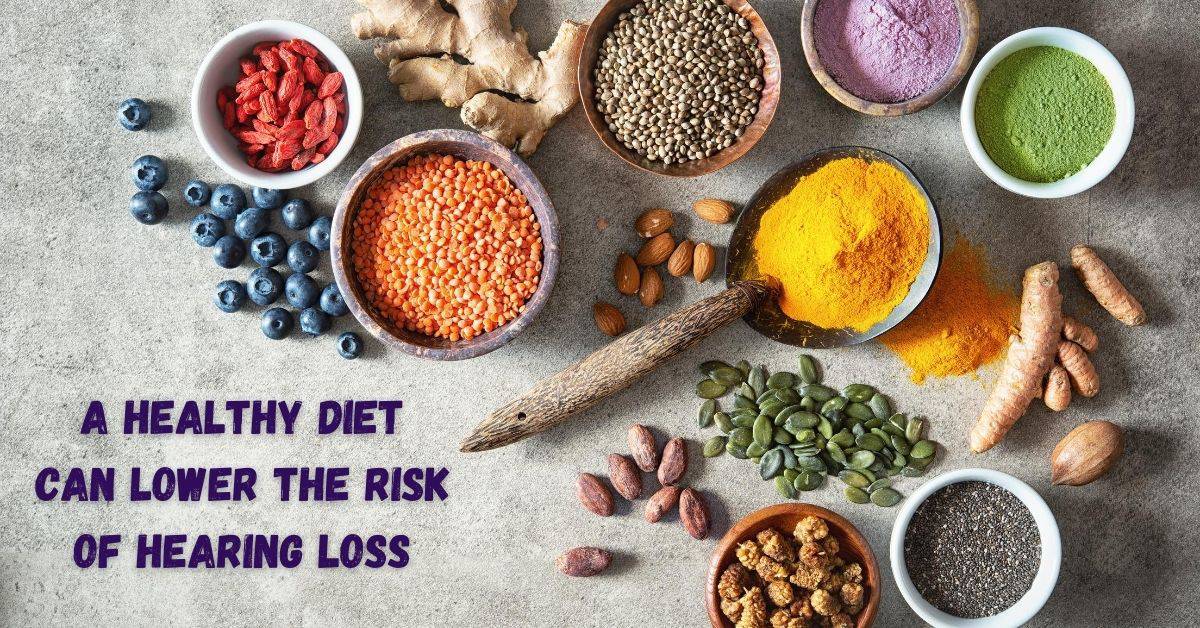
We are all familiar with the many benefits of healthy eating: more energy, preventing the development of diseases, a strong immune system etc. In addition to this, a healthy diet can also lower the risk of hearing loss! Hearing loss is the third most common chronic medical condition that over 40 million people navigate on a daily basis.
One prevalent misconception about hearing loss is that it’s an unavoidable reality of the aging process. However, impaired hearing impacts people of all ages and it is not an inevitable occurrence. Growing research focuses on ways to mitigate hearing loss which is a permanent health condition. One significant way that people can reduce their risk is by following a healthy diet.
Research on Healthy Eating and Hearing Loss
Though it has been widely known that a healthy diet provides the vitamins and minerals that nurture the body and the many functions that sustain our lives, more research investigates how this in fact is connected to hearing loss.
In one of the most significant studies, researchers at Brigham and Women’s Hospital (Boston) investigated the relationship between healthy diets and hearing loss in depth. Published in the American Journal of Epidemiology in 2019, this study included 3,135 people across various geographical locations throughout the United States. Researchers analyzed data collected for 20 years (between 1991 – 2011) that consisted of dietary intake and results from hearing tests conducted every three years. The findings show that people who followed healthy eating patterns were less likely to develop hearing loss. They were:
- 30% less likely to develop mid frequency hearing loss
- 25% less likely to develop high frequency hearing loss
These significant statistics reveal that dietary patterns and hearing loss are strongly correlated and that healthy eating reduces risk of impairment.
Healthy Diets and Hearing Loss
We often associate the word diet with specific regimens that are strict and rule oriented. These types of diets are followed for a short(er) period of time and people typically expect particular “results”. However, in the 2019 study, researchers found that the healthy diets participants were following, closely resembled well known and established dietary recommendations. These patterns are general ways of eating that are grounded in fresh rather than processed foods. They provide broad approaches to food rather than a highly defined prescription of what to eat. The dietary patterns of the participants included:
- DASH (Dietary Approaches to Stop Hypertension)
- AMED (Alternate Mediterranean)
- AHEI-2010 (Alternate Healthy Index-2010)
These ways of eating are actually similar and emphasize a plant based and whole foods diet. This means that the staples of your diet are natural vs. processed foods. The key characteristics include:
- Increased intake of vegetables, fruits, whole grains, and legumes
- Elimination of all processed foods
- Limited intake of dairy and meat
These approaches seek to eliminate (or drastically reduce) the additives and chemicals that cause harm. They focus on providing the body with the nutrients needed to thrive and be as healthy as possible.
Foods that Support Hearing Health
Healthy ways of eating provide an abundance of resources that are great for maintaining the health of vital systems, including the auditory system which is responsible for our hearing. There are important nutrients that are really beneficial for our hearing including:
- Potassium: which can be found in potatoes, mushrooms, spinach and much more; helps maintain the balance of the fluid found in the inner ear which works with the hair cells to help convert soundwaves into electrical signals for the brain to process.
- Magnesium: foods rich in magnesium include black beans, chickpeas, seafood, and cabbage. Magnesium provides protection for the hair cells in the inner ear. There are thousands of these hair cells which are highly sensitive and need time to rest and be protected as much as possible.
- Omega 3: found in fish, tofu, chia seeds etc. is great for the body overall. Omega 3 combats inflammation and helps maintain blood flow. Healthy blood flow in the ear helps facilitate effective hearing.
Healthy ways of eating have numerous benefits that enhance your quality of life including reducing your risk of various medical conditions including hearing loss! Additionally, hearing health is maintained with annual hearing tests. Contact us today to schedule your next hearing test!
